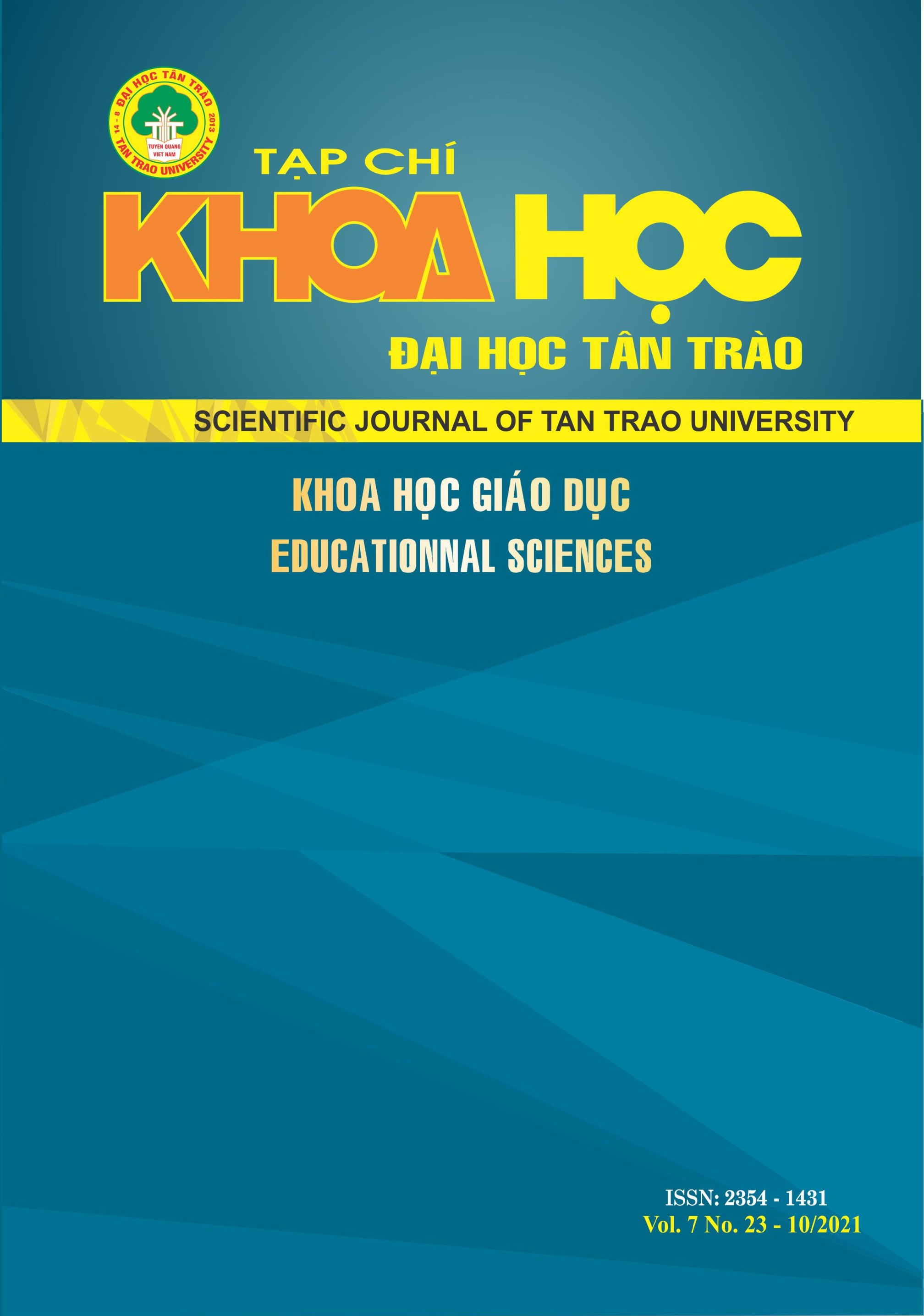SOME IMPACTS OF THE FOURTH INDUSTRIAL REVOLUTION FOR LEARNING ATTITUDE OF THE POLITICAL THEORY SUBJECTS OF THE CURRENT STUDENTS
DOI:
https://doi.org/10.51453/2354-1431/2021/585Keywords:
Industry 4.0, political theory, impact, studentsAbstract
The Fourth Industrial Revolution has been changing the face of socio-economic life in the general world and in Vietnam, particularly. As a force of the young intellectuals of the country, current Vietnamese students are a class of people who live in the circumstances and conditions of the fast development of science and technology so that they are so sensitive to life and social change. Within the scope of this article, the author presents an overview of the positive effects and challenges of the fourth industrial revolution on the learning of political theory subjects of students at the current universities, colleges.
Downloads
References
[1] Anh, P. T. P., Tuyen, T. T. N. (2017). Current situation of political thought education activities in universities of Vietnam. Can Tho University Journal of Science, 48d: 13-19.
[2] Hieu, T. V. (2011). Current status of teaching and learning the political theory subjects surveyed at Can Tho University, Dong Thap University & An Giang University. Can Tho University Journal of Science, 19a: 78-85.
[3] Ho Chi Minh (2011). Complete Work. National Political Publishing House, Hanoi, vol.13.
[4] Karl, M., Friedrich, E. (2000). Complete Work. National Political Publishing House, Hanoi, 46, II.
[5] National Agency for Science and Technology Information (2017). Industrial Revolution 4.0 – Opportunities and Challenges, Review of Finance, No 6/2017 (period 1).
Downloads
Published
How to Cite
Issue
Section
License

This work is licensed under a Creative Commons Attribution-ShareAlike 4.0 International License.
All articles published in SJTTU are licensed under a Creative Commons Attribution-ShareAlike 4.0 International (CC BY-SA) license. This means anyone is free to copy, transform, or redistribute articles for any lawful purpose in any medium, provided they give appropriate attribution to the original author(s) and SJTTU, link to the license, indicate if changes were made, and redistribute any derivative work under the same license.
Copyright on articles is retained by the respective author(s), without restrictions. A non-exclusive license is granted to SJTTU to publish the article and identify itself as its original publisher, along with the commercial right to include the article in a hardcopy issue for sale to libraries and individuals.
Although the conditions of the CC BY-SA license don't apply to authors (as the copyright holder of your article, you have no restrictions on your rights), by submitting to SJTTU, authors recognize the rights of readers, and must grant any third party the right to use their article to the extent provided by the license.


